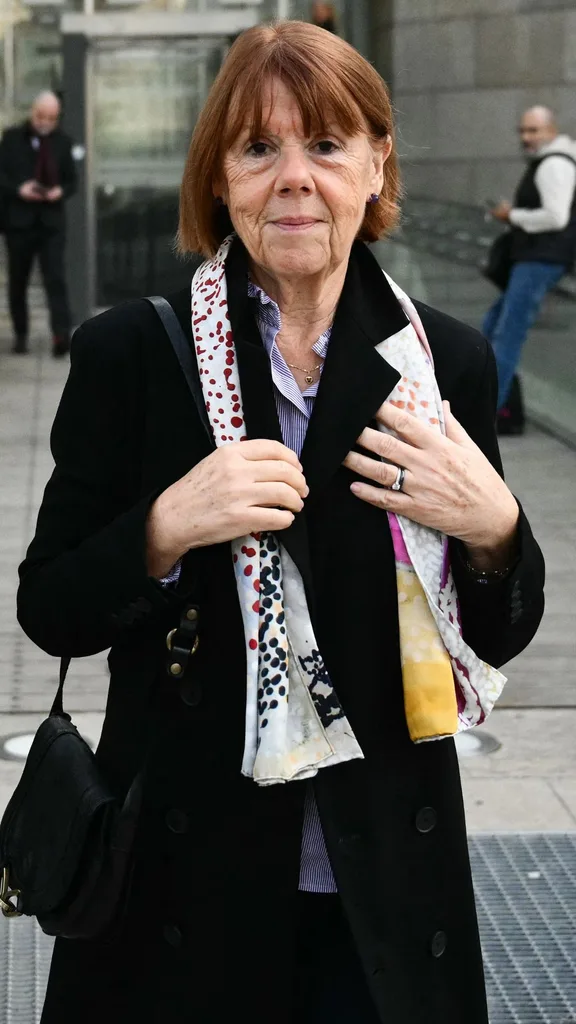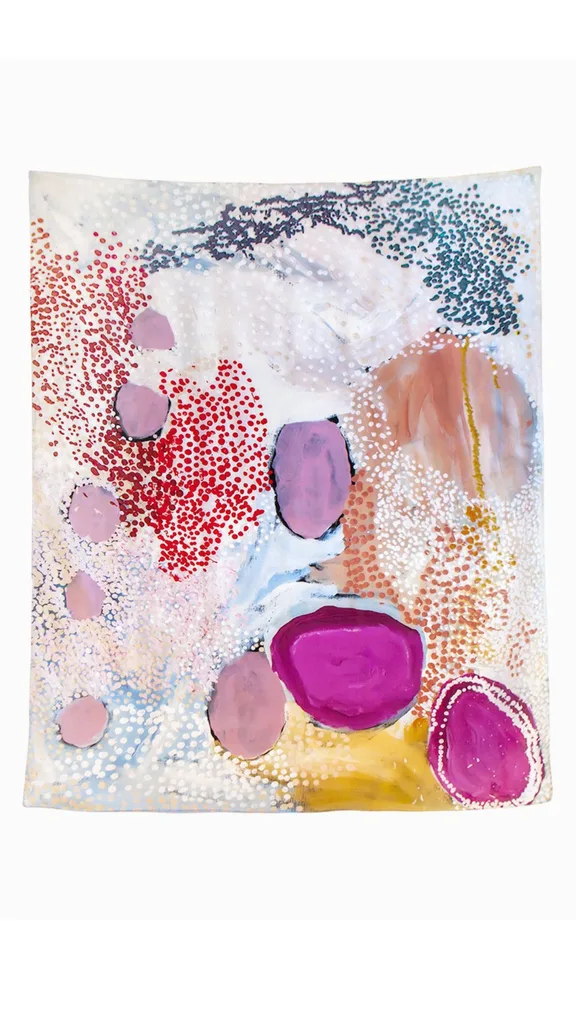**Trigger Warning: This article mentions sexual assault**
As Gisèle Pelicot sat in an Avignon courtroom listening to the testimony of the men at the centre of one of the most horrific rape trials in recent memory, a scarf designed by Martu artist Mulyatingki Marney enveloped her in a symbolic show of support from thousands of kilometres away.
Sent to Pelicot by the Australian Older Women’s Network – a local organisation working to raise awareness of sexual assaults on older women – the scarf was a constant source of comfort for Pelicot as the trial of her ex-husband Dominique Pelicot, who is accused of drugging her and inviting strangers into their home to abuse her over a 10-year period, continues.
“I’m very honoured to wear it,” Pelicot said as she was leaving the court in Avignon.

Gisèle Pelicot’s lawyer, Stéphanie Babonneau reiterated how grateful her client was to receive such a meaningful gift: “She was very touched to receive the scarf and see that on the issue of violence against women, even in Australia on the other side of the world, women feel the same way, and that there is a connection that unites women across the world in standing up against violence against women, and particularly sexual violence.”
Members of The Older Women’s Network, touched by the resilience and bravery shown by Pelicot in the face of such harrowing trauma, were inspired to raise the funds to purchase and send Gisèle Pelicot the First Nations scarf in a show of solidarity.
In a statement shared with The Guardian, member Yumi Lee said that she and the other group members wanted Pelicot to know that the world was watching on in support, awe and gratitude, for everything she had done to remove the shame and stigma from conversations about sexual violence against women.
“What she has done is help us to take a big step to change the status quo,” she said.
Continuing, “She’s a champion. We hope that once the trial is over, she will be able to feel the sun on her skin and know that she is treasured by many, many women around the world.”
The scarf designed by Martu artist, Mulyatingki Marney, features an artwork titled Wilarra, the word for moon in Manyjiljarra, and also the name for the site depicted in the artwork.
According to the artist, the work represents the site that she and her sisters camped at frequently throughout their life, where a cluster of saltwater pools known for their healing properties are a place of significance for the Martu people.
“The moon and the lake. The moon is taking care of the dingo pups, it’s looking after them. This here is the salt lake [and the] dingo pups here laying down, they’re laying there with their mum. [The] father is here, [the] father of the pups with his wife. They are talking to each other, laying down next to each other. They sang out, kept howling. The pups listened and ran away. The moon is laying down taking care of the pups.”

“We want her to have something which is linked to the 60,000 years of history – that unbroken connection with the human spirit which we want her to feel nurtured by,” Lee told NITV of the decision to send Gisèle Pelicot the First Nations scarf.
“It is symbolic of the fact that First Nations women have endured hundreds of years of violence and suffering, including sexual violence – and yet, they persist to fight for the future.”
Addressing the court for the second time on October 23, Pelicot explained why she chose to make the trial public and forgo anonymity in favour of using her real, married name.
“I wanted all women who are rape victims to say to themselves, ‘Mrs Pelicot did it, so we can do it too,’ It’s not us who should feel shame, but [the perpetrators]”.
READ NEXT
It Ends With Us: The Changemakers Demanding We All Do Better
Gisèle Pelicot Addresses The Court In Mass Rape Trial
Is Gisèle Pelicot leading France’s MeToo Reckoning?
How Many Husbands Drug Their Wives?
This article originally appeared on Marie Claire Australia and is republished here with permission.







